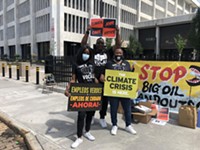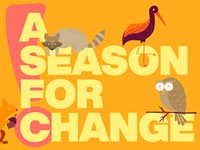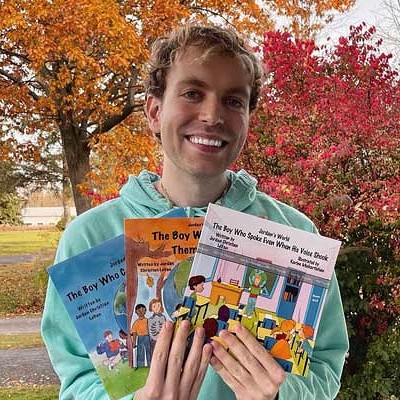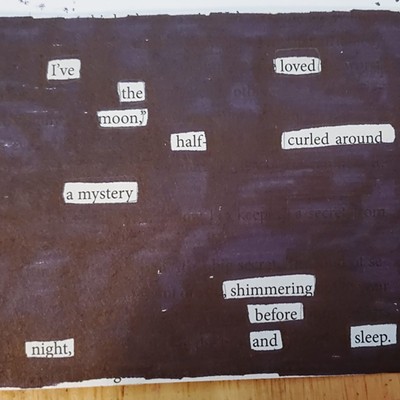[
{
"name": "500x250 Ad",
"insertPoint": "5",
"component": "15667920",
"parentWrapperClass": "",
"requiredCountToDisplay": "1"
}
]
The Aral Sea in Kazakhstan and Uzbekistan was once one of the world's largest saltwater lakes. But in the 1950's and 1960's, the Soviet Union ramped up agricultural programs in the sea's basin, which included diverting the freshwater streams that fed the sea and using the water for farming. By 2010, the Aral Sea was a puddle of its former self.
Maude Barlow, a Canadian activist well-known for advancing the concept of water as a human right, uses the Aral Sea as a cautionary tale. It's an example of what can happen when water resources are abused or used unsustainably, she says.
"They just diverted it to death," Barlow says.
A high-profile voice on water issues, Barlow is chair of the Council of Canadians, which is Canada's largest public interest group, and chairs the board of Food and Water Watch in Washington, D.C. She was deeply involved in efforts to get the United Nations to declare water a human right, which it did in 2010.
Barlow will be one of the keynote speakers at the Rochester Sierra Club's annual environmental forum, which this year will span two days, April 25 and April 26. More information on the forum is available at http://newyork.sierraclub.org/rochester/.
Barlow says the Great Lakes, the world's largest freshwater ecosystem, are not the inexhaustible water source they are often perceived to be; they face threats of their own. One threat comes from over-extraction, whether it's for drinking or for large-scale uses like agriculture and food production, industry, power plants, or paper mills.
While the United States and Canada have a pact to limit withdrawals from within the Great Lakes basin, there are loopholes. For example, water bottling plants still operate in the Great Lakes region, Barlow says. And developing the regulations to implement the pact, as well as enforcing them, has been done on a state-by-state — or province-by-province — basis.
And there are threats to water quality: nutrient runoff feeds algae blooms in the lakes; fracking for natural gas — which is under consideration in New York — is water-intensive; and the heavy crude oil from Canadian tar sands is being transported across the lakes via pipelines and ships. (Extracting the oil is also water-intensive, though the sands lie outside of the Great Lakes basin.)
"We've got a kind of conquest mentality to water," Barlow says. "We don't respect it; we don't protect it in watersheds."
An edited version of a conversation with Barlow follows.
CITY: What does it mean to recognize water as a human right?
Barlow: There is actually a global water crisis in terms of the actual demand for water and the actual supply. It doesn't mean that the water isn't still there on the planet; it means we've done bad things with it. Some people have all they want, all they don't even need, while others are going without.
If you just look at straight numbers and nothing else, the lack of access to clean water is the biggest killer in the world. There isn't anything that comes near. It's a bigger killer of people than violence of all kinds, including war. And it's by far the largest killer of children.
While most of the people in the world who are doing without water live in the developing world, it is increasingly true that there are people in the global north experiencing this as well. In inner-city Detroit, the authorities have cut off the water officially to 42,000 residents because they can't pay their water bills. They're largely African American, older people, single mothers. And we're literally talking about third-world conditions where people go out with buckets and they go to parks or they go to the local schools, or they do whatever they can to find water and bring it home.
And increasingly, the water is being given over to private interests to develop industrial areas, to develop commercial interests, and away from the people and the small farmers who need it and who depend on it for life.
It's a double issue of the amount of water — the quality, quantity, and accessibility — plus poverty and injustice. Those come together to create a really serious story.
As far as the Great Lakes are concerned, what are the implications of treating water as a human right? What would that mean on a global and regional basis?
If you really look at the whole concept of water as a human right, you start to look at who has access, why they have access. For the Great Lakes you start to say: "These lakes don't just belong to the people of North America." I would argue that as a fifth of the world's water, they are a global asset. And we have a responsibility to take care of them, and that means we have to bring in a set of principles upon which we build sustainable use for these lakes.
We used to worry more about wealthy companies or countries putting pipes in the Great Lakes and just sucking the water out. I don't think that's going to happen. Nobody will let that happen, certainly in the near future. The larger issue is the millions and millions of refugees — water refugees, climate refugees — in the world, where they're going to live and where they're going to get food and water.
We have this gift. We have this incredible bounty and shame on us if we allow it to be destroyed.
What are some of the other issues facing the Great Lakes?
First of all, they're in decline in every way in terms of pollution, in terms of invasive species, in terms of water quality, in terms of eutrophication. And we have climate change. We've got a huge reduction in the amount of ice cover over the last few decades, which means that [the water] evaporates too quickly because the ice cover isn't thick and it melts earlier in the spring.
We also have over-extraction. We're literally taking more out of the lakes every day than we're collectively putting back into them. And this is a really serious part of the story.
We also have a whole bunch of new private interests moving in to the lakes. It seems to me the problem we have is there are too many elected officials and business people who just see the lakes as big dollar signs. We use the Great Lakes as an economic resource to promote profit and well-being. Now, there's nothing wrong with that to a point; obviously, people have to make a living. Of course there's a commercial dimension to water or a water dimension to commercial interests. But it seems to me that's come first.
What will the future of Great Lakes preservation or protection look like? What do you think it should look like?
I think we should see it as a common heritage; it's a public trust that must be guarded by law and by local communities. And if there's a commercial taking [of] the water — if somebody wants to use the waters for some commercial purpose — they have to convince the owners of the lake, the people, that they're not going to hurt it.
Vermont's done this. Vermont has passed groundwater legislation that says their groundwater is a public trust. And they actually spell out what that means: if there's any conflict or shortage that water for people's daily use is a top priority, as is water for the ecosystem, and then sustainable food production for local needs, as opposed to this massive export of stuff.
You can bring in the right kind of law that spells out the ways in which you're going to protect the water, but it really does start with a vision.
Fracking is a big issue in New York right now, and the potential impact on water is a major concern. In your opinion, is there any way the state could allow fracking in any capacity?
Not under current circumstances. Not with the method of fracking [that's being widely used].
I chair the board of Food and Water Watch in the US and we're calling for a full [national] moratorium on [fracking] Now, at some future time they may find the technology that allows them to frack the gas without destroying water and without those chemicals. I'm open to that. But under the current circumstances, under the current way that natural gas is produced under fracking, no.
We pit air against water here. We say "Well, natural gas is better than oil, especially tar sands oil; it's better than coal; it's better than nuclear. But it's destroying water. We always see water as that thing that's endless, that you can use and abuse as much as you want because there'll always be more.
The story that I'm spending my life trying to tell people is that's not true. It's just simply not true. It's the most vulnerable of all the resources, actually.
Speaking of...
-

Six art shows you shouldn’t miss this fall
Sep 1, 2021 -

Activists want federal funds for climate, social justice initiatives
Aug 20, 2021 -

Calendar preview: A Season for Change
Sep 10, 2020 - More »
Latest in News
More by Jeremy Moule
-

ROCHESTER TEN
ANNETTE RAMOSAug 1, 2023 - More »





